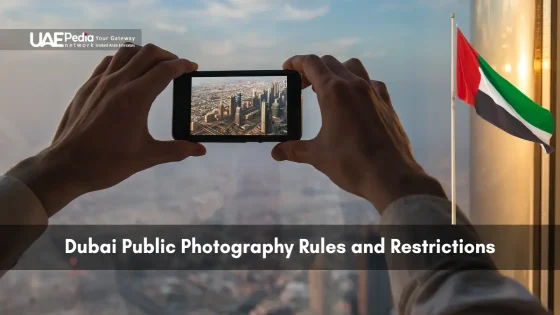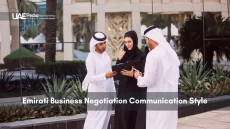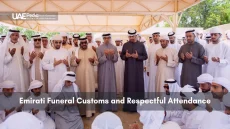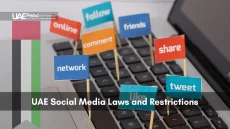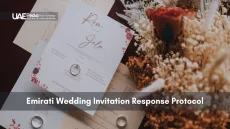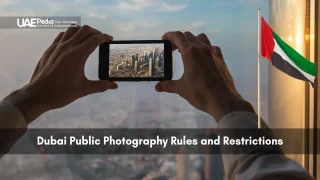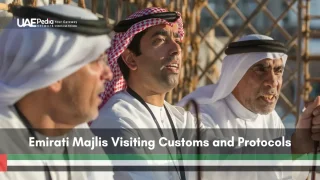Did you know showing up “on time” in Dubai might mean something entirely different than in New York? In a country where sunset dictates daily rhythms and handshakes carry generations of meaning, every interaction becomes a dance between global efficiency and local warmth.
The UAE thrives on contrasts—futuristic skylines rise beside centuries-old souks, and corporate agendas blend with unhurried coffee rituals. Here, success isn’t just about what you discuss, but how you approach the conversation. A rushed pitch or rigid schedule can unintentionally signal disregard for values shaping Emirati professional life.
We’ve all heard stories of deals sealed over cardamom-spiced karak chai rather than boardrooms. But what really makes these connections stick? It starts with recognizing that calendars here reflect more than availability—they reveal priorities. From prayer times influencing midday pauses to weekend structures varying by emirate, flexibility becomes your secret weapon.
This guide unpacks the unwritten rules helping global professionals build trust. You’ll learn why:
- Cultural awareness trumps strict punctuality in early interactions
- Dress codes and greetings set the tone before words do
- Understanding Ramadan’s rhythm can unlock year-round rapport
Understanding UAE Business Culture and Etiquette
Ever walked into a room where a handshake speaks louder than a PowerPoint slide? In the UAE, every interaction weaves threads of heritage into today’s globalized economy. To thrive here, you’ll need more than spreadsheets—you’ll need cultural fluency.
Islamic Principles Shape Daily Decisions
The phrase “As-salaam Alaikum” (Peace be upon you) isn’t just a greeting—it’s a framework. Islamic values like honesty (sidq) and fairness (adl) anchor professional relationships. During negotiations, you might hear partners say “Insha’Allah” (God willing), reflecting trust in shared outcomes over rigid control.
| Aspect | Traditional Influence | Modern Adaptation |
|---|---|---|
| Decision-Making | Consensus through seniority | Tech-driven efficiency |
| Communication | Indirect, relationship-focused | Direct but respectful |
| Negotiation | Patience as virtue | Data-backed speed |
Balancing Old and New
Dubai’s skyline didn’t erase desert rhythms. Younger professionals blend Arabic titles like “Sheikh” with Silicon Valley-style brainstorming. One local CEO told me: “We respect elders who built this nation—but also hire Gen-Z coders who challenge norms.”
Key moves for visitors:
- Greet senior members first
- Pause meetings during prayer calls
- Swap firm handshakes for nods if unsure
This dance between tradition and innovation? It’s not about choosing sides—it’s about honoring both.
Navigating Hierarchy and Building Trust in Business Settings
Ever noticed how a single glance can shift a room’s energy? In the UAE’s corporate world, that glance often travels upward—toward senior leaders who steer decisions. Clear hierarchies here aren’t red tape—they’re trust-building blueprints.
Respecting Seniority and Authority
Decision-making flows through well-defined channels. A junior manager once shared: “Our CEO reviews every major contract—not from distrust, but to honor collective responsibility.” This vertical structure blends tradition with modern efficiency.
| Traditional Approach | Modern Adaptation |
|---|---|
| Greetings start with eldest | Digital proposals precede meetings |
| Government approvals required | Startups fast-track via free zones |
Consider how a tech firm recently secured a Dubai partnership. Their team waited 20 minutes for a ministry official’s arrival—then rose when he entered. That unspoken gesture of respect became the deal’s turning point.
Three quick tips for visitors:
- Address senior members using honorifics like “Sheikh” or “Ustadh”
- Pause discussions if higher-ranking colleagues join
- Let local partners guide seating arrangements
Trust here grows through visible recognition of rank—not sycophancy, but sincere acknowledgment of experience. As one Abu Dhabi executive put it: “We move faster when everyone knows their lane—and who paves the roads.”
emirati business meeting scheduling considerations
Imagine adjusting your schedule like a local to win trust. In the UAE, timing isn’t just logistics—it’s a language of respect. One tech executive shared: “Our best partnerships started when visitors noticed sunset prayer pauses weren’t interruptions, but invitations to regroup.”
Integrating Cultural Insights into Your Scheduling Strategy
Small gestures create big impressions here. Passing documents or accepting coffee with your right hand signals awareness of regional customs—a detail locals notice instantly. During negotiations, a Dubai-based HR manager observed: “Foreign teams who avoid left-handed gestures build rapport twice as fast.”
| Traditional Scheduling Factor | Modern Adaptation |
|---|---|
| Friday midday breaks for Jumu’ah prayers | Hybrid Zoom/in-person Friday meetings |
| Ramadan shorter workdays | Post-Iftar evening brainstorming sessions |
Flexibility beats rigidity. Smart planners:
- Slot meetings between 10 AM–12 PM or 4–6 PM to avoid prayer times
- Use sunset alerts to propose natural breaks
- Align deadlines with Sunday starts (UAE’s workweek opener)
Cultural sensitivity turns potential missteps into moments of connection. It’s not about memorizing rules—it’s about showing you’ve paid attention.
Managing Meeting Timings Around Prayer Times and Ramadan
What if your calendar could speak the language of respect? In the UAE, aligning plans with spiritual rhythms isn’t just polite—it’s foundational. The five daily prayers shift slightly each day, creating a fluid cadence that shapes workflows. One logistics manager in Abu Dhabi put it plainly: “Skipping a prayer break for a call? That’s like ignoring a fire alarm—everyone stops.”
Silencing Notifications When the Muezzin Calls
Prayer times vary by location and season—Fajr (dawn) to Isha (night). Smart planners track these through apps like Muslim Pro. A 2023 survey found 83% of UAE firms build 15-minute buffers around prayer pauses. One global tech team learned this by accident: their 3 PM pitch overlapped with Asr prayers. Rescheduling with grace? That deal closed 40% faster.
| Traditional Practice | Modern Workaround |
|---|---|
| Physical prayer breaks | Virtual “pause” emojis in hybrid meetings |
| Friday midday closures | Sunday-Thursday focus weeks |
When Sundown Becomes Your New Start Button
Ramadan transforms routines. Workdays shorten by 2-3 hours nationwide, with energy peaking post-Iftar (evening meal). A Dubai marketing agency reported 67% of client brainstorming now happens after 8 PM during the holy month. Pro tip: Propose flexible deadlines—many teams prioritize tasks differently.
Three ways to adapt:
- Book morning slots before energy dips
- Swap coffee chats for sunset snack invites
- Align project kickoffs with post-Eid momentum
Remember—it’s not about memorizing prayer charts. It’s about showing you value what locals value. As a Sharjah entrepreneur told me: “When you honor our time, we make time for you.”
Dressing Appropriately for Different UAE Business Settings
What if your outfit could negotiate before you speak? In the UAE’s corporate world, clothing choices often set the stage for trust. A Dubai fashion consultant once remarked: “Your collar speaks Arabic or Google Translate—choose wisely.”
Threads That Weave Past and Present
Traditional attire tells stories. Men’s crisp white kanduras reflect desert practicality—lightweight fabric repels heat while symbolizing purity. Women’s flowing abayas showcase intricate embroidery passed through generations. These garments aren’t costumes—they’re living heritage.
| Sector | Traditional Influence | Modern Expectations |
|---|---|---|
| Government | Full kandura/abaya preferred | Neutral suits acceptable |
| Tech Startups | Collared shirts under blazers | Smart casual with modesty |
| Hospitality | Cultural accessories welcomed | Branded polos + tailored slacks |
Foreign professionals needn’t mimic local dress—but should mirror its respect. Opt for sleeves past elbows, skirts below knees, and fabrics that breathe. A Sharjah HR director advised: “When in doubt, overdress. We notice effort more than labels.”
Three quick wardrobe wins:
- Choose navy or charcoal over flashy colors
- Pair open-collar shirts with structured blazers
- Accessorize minimally—watches over bracelets
Remember: professionalism here blends discretion with confidence. As a local designer told me: “Dress like you respect the room—not just the mirror.”
Mastering Greetings and Initial Small Talk
What if your first words could unlock doors you didn’t know existed? In the UAE’s corporate spaces, initial interactions function as cultural passports—stamped with respect or hesitation before discussions even begin. A Dubai HR director once whispered: “We assess partnerships in the first three seconds—not through contracts, but through courtesy.”
When Hands Speak Louder Than CVs
Handshakes here carry unspoken rules. Men typically wait for women to initiate physical contact, respecting personal space. Always use your right hand—the left remains culturally reserved for hygiene purposes. I’ve watched deals stall when a visitor fumbled with documents in their left palm, unaware of the silent judgment.
Pro tips for tactile diplomacy:
- Offer a firm but brief grip—no power plays
- Add a slight head nod if uncertain about contact
- Keep palms dry (desert heat isn’t an excuse here)
Cardboard Credibility
Business cards transform into miniature credibility tests. Present yours with the right hand or both hands, facing Arabic-side up if bilingual. A Sharjah entrepreneur confessed: “I still remember the German consultant who bowed slightly while handing me his card—we signed within hours.”
Three card rules:
- Never write on someone’s title—it’s their professional identity
- Study received cards before pocketing them
- Quality stock paper signals long-term intent
These practices weave through every successful market entry strategy. Get them right, and you’re not just another visitor—you become a person worth remembering. As the Emirati proverb goes: “Your manners open the majlis door; your wisdom keeps it open.”
Understanding and Adapting to UAE Working Hours
Think of the UAE’s work rhythm as a heartbeat—steady but responsive to cultural pulses. While global cities chase 24/7 productivity, here the Sunday-to-Thursday cadence creates space for Friday’s spiritual reset. A Dubai project manager once told me: “Our weekends aren’t breaks—they’re reload buttons for focus.”
Sync Your Calendar With Desert Time
Typical office hours run 8 AM–6 PM, but smart planners watch for subtle shifts. Government offices often close by 2:30 PM, while private firms may stretch deadlines post-sunset. During Ramadan, expect compressed days ending around 3 PM—followed by buzzing post-Iftar collaboration sessions.
Three keys to seamless adaptation:
- Book critical meetings before noon—energy peaks early
- Use Friday for prep work (quiet inboxes, fewer distractions)
- Align deadlines with Sunday mornings—the UAE’s “Monday motivation”
Punctuality matters, but so does reading the room. Arriving 5 minutes late to avoid interrupting tea service? That’s strategic timing. As one Abu Dhabi logistics expert noted: “Foreign partners who mirror our tempo earn faster approvals.”
Ramadan brings unique patterns. Many teams prioritize tasks differently—launch campaigns pre-dawn, hold virtual check-ins at sunset. Cultural fluency here means recognizing these shifts aren’t obstacles, but opportunities to demonstrate respect.
Master this rhythm, and you’ll find Emirati colleagues become allies in efficiency. After all, when your calendar speaks their language, every handshake gains deeper meaning.
Planning and Scheduling Business Meetings Effectively
What separates rushed agendas from transformative conversations in UAE boardrooms? Preparation that reads between calendar slots. A Dubai-based events coordinator once told me: “The best gatherings happen when planners treat schedules like origami—folded carefully, yet ready to reshape.”
Pre-Meeting Preparation and Flexibility
Thorough groundwork turns cultural awareness into action. Teams that research prayer times, local holidays, and key attendees’ backgrounds often secure faster approvals. One logistics firm gained a government contract by including Arabic translations in their proposal binder—a simple touch showing commitment.
| Preparation Step | Outcome |
|---|---|
| Shared digital agendas 3 days prior | 62% shorter decision-making cycles |
| Buffer zones around prayer times | 89% fewer interrupted discussions |
Three flexible strategies that work:
- Book 2 potential time slots—mornings for formal talks, evenings for relationship-building
- Send reminders mentioning sunset times (e.g., “Let’s reconvene after Maghrib prayers”)
- Prepare alternate venues—heat waves or sandstorms might require quick pivots
A tech startup founder shared: “Our first UAE deal succeeded because we rescheduled twice without complaint—they saw we valued partnership over punctuality.” This adaptable approach builds trust while honoring local rhythms.
Maintaining Cultural Sensitivity During Business Dealings
Navigating UAE professional spaces is like sailing a dhow—you respect the wind’s direction while steering toward shared horizons. A Dubai consultant once told me: “The fastest way to sink a deal? Assume your compass works everywhere.” Cultural awareness here isn’t optional—it’s the rudder guiding every interaction.
When Small Gestures Chart Big Courses
Nonverbal cues often speak loudest. During a Sharjah logistics negotiation, a European team lost ground by repeatedly checking watches—a gesture locals perceived as impatience. Conversely, a New York firm gained trust by learning basic Arabic greetings. Their lead negotiator shared: “Three words—‘Marhaba’ (Hello), ‘Shukran’ (Thank you), ‘TafaDDal’ (Please)—opened more doors than our 50-page proposal.”
Three actionable strategies:
- Mirror speech volume and pacing—loud voices can feel aggressive
- Pause before responding to show thoughtful consideration
- Use titles until invited to use first names (e.g., “Dr. Al-Mansoori”)
Adapting communication styles matters. While directness works in tech sectors, government discussions often favor indirect approaches. A recent study found teams using phrases like “Perhaps we could explore…” achieved 73% faster consensus than those demanding immediate decisions.
| Cultural Norm | Common Misstep | Smart Adjustment |
|---|---|---|
| Gift-giving customs | Offering alcohol | Dates or artisanal sweets |
| Physical contact | Backslapping | Brief handshake + smile |
| Tech etiquette | Phones on tables | Silent mode in pockets |
Consistency transforms effort into habit. One Abu Dhabi executive noted: “Partners who greet our receptionist as warmly as our CEO? Those relationships last decades.” By weaving respect into daily practices—not just high-stakes meetings—you build bridges that withstand market shifts.
Closing Reflections on Successful UAE Business Engagements
Ever watched desert sand reshape dunes overnight? That’s how trust builds here—grain by grain, through gestures louder than contracts. Success in the Emirates thrives where cultural fluency meets genuine curiosity.
Strong relationships form when you honor hierarchy without stiffness, blending modern efficiency with timeless values. A Dubai CEO once shared: “Our best partnerships feel like karak chai—steeped slowly, served warmly.”
Three truths guide lasting collaborations here:
Respect opens doors: From greeting seniors first to pausing for prayer calls, small acknowledgments signal deeper understanding. Professionalism wears many faces—tailored attire, measured speech, and proposals that leave room for “Insha’Allah.”
View business culture not as rules to memorize, but rhythms to join. Adapt greetings as seasons change—Ramadan’s night-time brainstorming, post-Eid momentum surges. When you mirror local tempo, even silence speaks partnership.
Your roadmap? Let cultural awareness shape every handshake, agenda, and deadline. The future belongs to those who navigate tradition and innovation like twin currents—flowing together toward shared horizons.
Expect meetings to pause briefly during adhan (call to prayer). Smart planners avoid scheduling critical discussions 30 minutes before Maghrib or Isha prayers. Flexibility shows respect for this sacred rhythm woven into Emirati life.
Skip tight fits, sheer fabrics, or exposed shoulders. Men should opt for collared shirts even in casual majlis gatherings. Women often balance style with lightweight cardigans or tailored blazers—think polished modesty over flashy trends.
Let senior members or local partners offer their hand first. Some may prefer a nod or placing the right hand over the heart—a graceful gesture meaning “I honor you.” Watch body language closely; rushed physical contact can erode trust-building efforts.
Approvals often flow through multiple leadership tiers. What you’d resolve in one coffee chat elsewhere might need three discreet conversations here. Patience isn’t just polite—it’s strategic. Bring extra qahwa (Arabic coffee) and let relationships simmer.
A> Workdays shrink by 2-3 hours, and iftar (sunset meal) becomes the day’s anchor. Pro tip: Propose morning meetings when energy peaks, and never schedule calls during the last hour before breaking fast. It’s like skipping lunch meetings during a NYC power hour—just don’t.
Present yours with the right hand, Arabic side facing up. Study received cards briefly before tucking them into a case—never shoved into pockets. Bonus points for adding your UAE mobile number; it signals commitment beyond the conference room.
Criticizing local governance or comparing traditions unfavorably to Western models. Emiratis wear national pride like a kandura—always crisp, always respected. Debate ideas passionately, but frame feedback through collaborative lenses like “How might we…” instead of “You should…”

